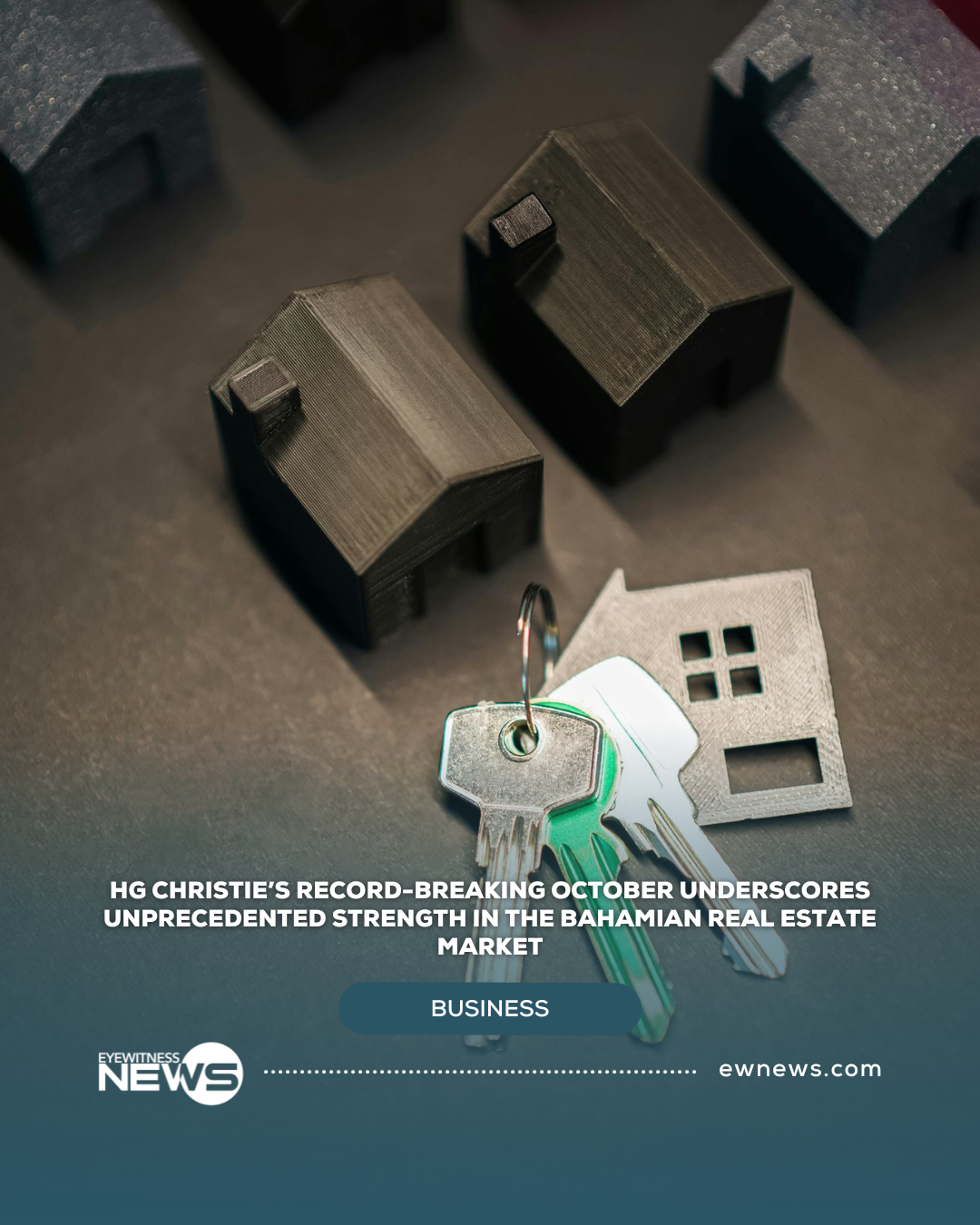NASSAU, BAHAMAS- After recording 49 completed sales in October—a milestone President John Christie believes may be unmatched in Bahamian real estate—the country’s oldest agency expects this surge in activity to continue heading into 2026.
Christie, whose company is the longest-standing real estate agency in The Bahamas, said the milestone speaks to the “remarkable strength and resilience” of the property market across the archipelago.
While the surge in completed transactions reflects contracts written over the preceding months, the concentration of closings in October points to a market firing on all cylinders. “I don’t think there’s any company doing that many sales in one month,” Christie said. “It’s indicative of the strength of the Bahamas real estate market across the board—from high-end luxury properties to middle-class, upper-middle-class, and even more modest homes. Even in the out islands, the market is very strong.”
According to Christie, a well-priced listing continues to attract immediate interest, signaling that buyer demand remains substantial both locally and internationally. “If you put something on the market at the right price, there are people ready to buy it,” he said. “The real estate market is definitely in a good space right now.”
Demand from international buyers, particularly from the United States, remains one of the key market drivers. Many U.S. purchasers are currently seeking vacation or second homes, especially in popular island destinations such as Eleuthera, Exuma, and Abaco. Christie also noted an uptick in European interest at the luxury tier. “We’re seeing a lot more Europeans coming in,” he said. “People who were holding back before now seem ready to move.”
Christie believes several external factors are contributing to this renewed appetite. Rising prices in major U.S. markets—especially South Florida—have made Bahamian waterfront properties comparatively more appealing. Insurance challenges and storm-related disruptions in Florida have also pushed some buyers to explore alternatives in the region. Additionally, political changes in U.S. cities, particularly in New York, may indirectly influence relocation patterns. “Florida will get most of those people, but The Bahamas could certainly get a few as well,” Christie added.
While international demand remains robust, the domestic market is equally strong. Bahamians, Christie said, are increasingly prioritizing real estate ownership as their most reliable long-term investment. “Everyone around The Bahamas is thinking it’s the best investment that anyone can make,” he noted. “People work hard to get their first home or first lot because real estate is appreciating.”
New developments, such as emerging master-planned communities designed for both Bahamian and international buyers, are helping to meet that need. Christie highlighted that buyers at all levels—first-time homeowners, families seeking larger properties, and those acquiring land to build over time—are participating actively in the market.
International buyers continue to be driven primarily by the desire for a second home rather than vacation-rental income. While some owners do use rentals to help offset holding costs such as maintenance or homeowner association fees, Christie said this is not the main motivation behind most purchases.
“Most people are at a point in their lives where they want to have a second home,” he explained. “They come to Exuma or Eleuthera or Abaco—or even Long Island or Grand Bahama—and they’re looking for that spot where they can spend their winters, enjoy holidays, or begin semi-retirement. Vacation rentals can help defray costs, but it’s not the primary driver.”
Despite anticipating potential cooling over the past two years, Christie said the firm continues to see strong forward momentum heading into the first quarter of next year. “There’s no reason for it to slow down,” he said. “Things are selling fairly quickly, and we’re putting new inventory on the market all the time.”
One potential challenge on the horizon is limited supply, particularly at the top end of the market. “In the luxury segment, there’s just a limited inventory,” Christie explained. “If there’s less on the market, there’s less we can sell. That could bring down the total number of sales—not because demand is weakening, but because supply is tightening.”
Scarcity, however, can also push buyers to move faster. “When there’s less on the market, buyers feel a greater sense of urgency,” he said. “If they want something, they’re going to buy it because if they don’t, they might lose it.”
Christie emphasized that accurate pricing is now more important than ever, noting that for over a decade the Multiple Listing Service’s (MLS) data has been available, allowing agents to rely on a growing body of comparable sales to guide sellers toward realistic listing prices.
“We finally have a real market with real data,” he explained. “In the past, people would say, ‘I spent this much on the house, so that’s what it’s worth,’ and pull a price out of the air. Now we have enough sales to show real comparables, and agents can advise sellers accordingly. If you list at the right price and market properly, the buyers are out there.”
Christie said the Family Islands remain among the strongest segments of the market. “All the key islands are pretty good,” he said. “Exuma, Eleuthera, Abaco, and Grand Bahama are very, very strong.”
Grand Bahama, in particular, is experiencing renewed interest after years of subdued activity. “They’ve had a great couple of years,” Christie noted. “People are seeing real value there, and we’re selling a lot of homes because of that.”
Meanwhile, in traditional vacation markets such as Abaco, Eleuthera, and Exuma, activity spans the full range—from entry-level lots to exclusive, high-end estates. “It really depends on where you are and what the market will bear,” Christie said.






